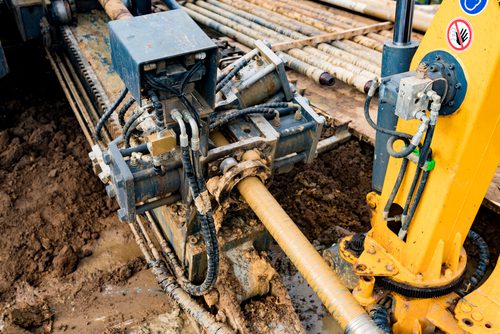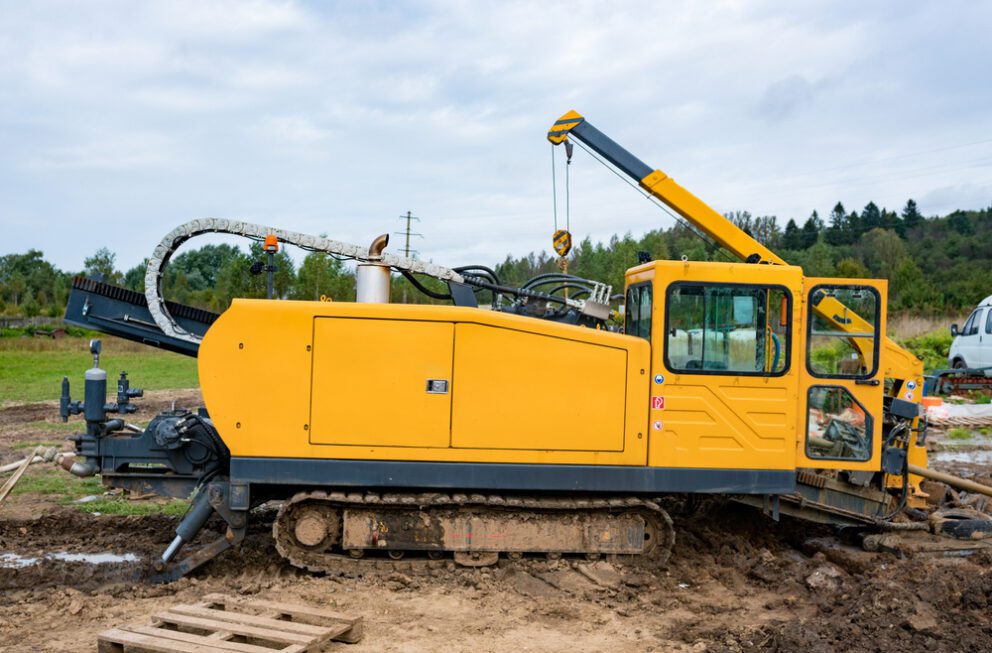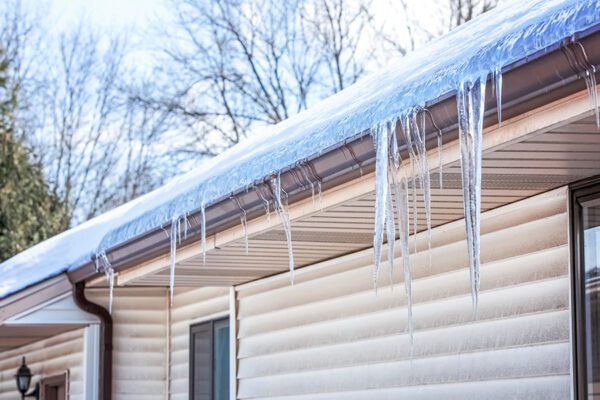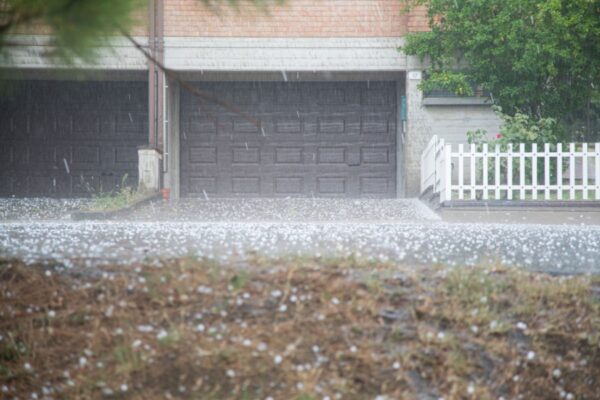The world beneath our feet is a complex web of infrastructure that is essential to the functioning of modern society. From the conduits that safeguard our cables and wires to the robust sewer systems that manage our waste, underground utility construction is the unseen backbone of urban development. However, with this necessity comes inherent risks that can jeopardize the success and safety of such operations. This is where the expertise of a specialized insurance broker becomes invaluable.
For contractors and business owners involved in the intricate work of laying down gas mains, installing water connections, or threading fiber optic cables through conduits, each project presents unique challenges and risks. Partnering with a specialized insurance broker who understands the intricacies of underground utility or “infrastructure” construction insurance is not just an option—it’s a strategic move for safeguarding your investments, your people, and your business’s future.
In this comprehensive guide, we delve deep into the world of underground utility construction. We’ll explore the multifaceted aspects of this industry, discuss the significant risks involved, and emphasize why collaborating with a commercial insurance broker who specializes in this niche is crucial. Whether you’re at the helm of a seasoned construction firm or spearheading a startup, understanding the nuances of this sector and the protection insurance offers is fundamental.
As we navigate through the layers of underground utility construction, let’s keep in mind that the goal is not just to build and develop but to do so with the assurance that every cable laid and pipe installed is backed by a safety net that only a specialized insurance broker can provide.
Continue to learn how to secure your business’s foundation.
Understanding Underground Utility Construction
The Scope of Underground Utility Work
Underground utility construction is a term that encompasses a vast array of services and infrastructural work critical to our urban and rural landscapes. The scope of work includes, but is not limited to, Conduit Construction for Cables and Wires, which serves as the protective skeleton for our telecommunications, electrical, and fiber optic networks. These conduits ensure the security and functionality of the wires they house, which are essential for the flow of information and energy.
Another significant area is the construction of Gas Mains or Connections. These systems are the lifelines of many communities, providing the necessary fuel for heating, cooking, and industrial processes. Similarly, Water and Sewer Mains Construction forms a fundamental aspect of civil infrastructure, dealing with the essential management of water resources and waste.
The methods used in underground utility construction are diverse, each with its specialized equipment and techniques. Directional Drilling, both of small and large diameters, allows for the precise placement of utilities with minimal disruption to the surface. Micro Trenching is another innovative technique that enables faster and less invasive installation, particularly in congested urban environments.
Types of Projects and Locations
Underground utility projects can be classified into two broad categories: Building and Non-Building. Building-related projects involve utility work associated with commercial, industrial, institutional, and residential buildings. These projects often require intricate planning to integrate with existing structures and ensure that the utility services are laid out efficiently and safely.
Non-Building projects include a wider range of work such as utility installations that are independent of buildings, like those for Energy Related systems including wind and solar infrastructures, and Surface Transportation systems that support our roads, bridges, and railways. The location of these projects can span from Newly Established Right-of-Ways to challenging environments like Wetlands and other environmentally sensitive areas.
Electrical Operations Break-Down
Electrical operations in underground utility construction are vast and varied. They include the installation of Fiber Optic/Communication Systems, which are the backbone of our digital world, to the construction of Substations and High Tension Wire Work, which are critical for the distribution of electricity.
Overhead Telephone Cable Line Work and Traffic Lighting represent the visible part of the electrical operations, whereas much of the work occurs out of sight, such as Underground Telephone and Cable Line Work. After severe weather events, Emergency/Post Storm Work is vital to restore services and ensure public safety.
The Risks Involved in Underground Utility Construction
Physical and Environmental Risks
The underground utility construction industry is fraught with physical risks that require meticulous management. Workers face daily hazards, ranging from cave-ins during trenching operations to accidental strikes on existing utility lines, leading to potential outages or even explosions. The use of heavy machinery, such as during Directional Drilling or Pipe Bursting, increases the risk of workplace accidents that can lead to serious injuries or fatalities.
Environmental risks are equally significant. Projects, especially those involving Gas Mains or Sewer Lines, can have a profound impact on local ecosystems. An inadvertent release of materials can contaminate waterways, affecting both wildlife and human populations. Moreover, operations in Environmentally Sensitive Areas or Wetlands demand extra care to prevent ecological degradation.
The financial implications of these risks are substantial. Damage to third-party property or infrastructure can result in hefty fines and legal fees, not to mention the cost of repairs and the potential for increased regulation. Additionally, the downtime during incident investigations and repairs can lead to significant project delays, affecting not just the immediate project but also the broader operations of the companies involved.
Financial and Operational Risks
Beyond the immediate physical and environmental hazards, underground utility construction poses substantial financial and operational risks that can threaten the solvency and success of a project. Financial risks often manifest as cost overruns due to unexpected ground conditions, delays in project timelines, or disruptions caused by equipment failure. These overruns can be particularly damaging to the financial health of a project, leading to disputes with clients over additional costs.
Operational risks encompass the challenges associated with coordinating large teams, managing complex logistics, and ensuring compliance with ever-changing regulations. The underground utility construction industry requires precise synchronization of various moving parts, from supply chain management for materials like Fusible PVC (FPVC) pipe and Conduit to the coordination of on-site operations such as Micro Trenching and Horizontal Directional Drilling. A single misstep in this delicate balance can lead to operational delays, affecting not only the current project but also the broader reputation and ability to win future contracts.
In this high-stakes industry, the role of a specialized insurance broker becomes pivotal. Insurance is not merely a safeguard against unforeseen events; it is a strategic asset that enables business owners to navigate the volatile terrain of underground utility construction with confidence. A well-structured insurance plan provides a foundation for financial stability, ensuring that when risks become realities, the impact on the business is mitigated, allowing for recovery and continued operations.
Importance of Commercial Insurance in Underground Utility Construction
Protecting Your Assets and Employees
In the world of underground utility construction, where the margin for error is slim, and the consequences of mishaps can be severe, the protection of assets and employees stands paramount. The high-value machinery used in tasks such as Horizontal Directional Drilling or Micro Trenching represents a significant investment. Commercial insurance that covers these assets against damage, theft, or breakdown is essential for maintaining financial stability and operational capacity.
Moreover, the workforce undertaking these complex tasks is the industry’s backbone. They operate in challenging conditions, dealing with risks like utility line strikes or excavation mishaps. Worker’s compensation insurance is not just a regulatory requirement; it’s a critical element that underpins the welfare of the workforce. It ensures that if an employee is injured on the job, they receive the necessary medical care and financial support, which in turn helps maintain morale and productivity.
The right commercial insurance coverage acts as a shield, protecting against the potentially crippling costs associated with accidents and incidents on-site. It offers peace of mind to business owners and is a testament to their commitment to safety and responsibility. This assurance is also vital for clients and partners who seek to engage with companies that demonstrate a high standard of professional risk management.
Ensuring Business Continuity
A fundamental advantage of partnering with a specialized insurance broker is the safeguarding of business continuity. Interruptions to operations, whether due to equipment failure, accidents, or natural disasters, can halt projects and inflow of revenue, threatening the very survival of a business. Business interruption insurance is designed to mitigate the financial impact during such periods, providing compensation for lost income and helping cover ongoing expenses until normal operations resume.
Equally important is liability insurance, which protects a company from the costs associated with legal claims. In an industry where a single error can have significant consequences, such as damaging an existing utility line or causing an environmental spill, liability insurance is indispensable. It ensures that a business can withstand the repercussions of claims and continue to thrive.
In the dynamic landscape of underground utility construction, the risks are as varied as the projects undertaken. From New Utility Line Construction to Utility Line Servicing or Repair, each job comes with its own set of challenges. A specialized insurance broker with deep industry knowledge can tailor insurance solutions to the specific needs of each project, ensuring comprehensive coverage that aligns with the risks involved.
Partnering with a Specialized Insurance Broker
The Role of a Specialized Insurance Broker
In the highly specialized field of underground utility construction, a one-size-fits-all insurance policy falls short. Each project comes with its unique set of risks and challenges, which requires a nuanced understanding that only a specialized insurance broker can provide. Such a broker delves into the intricacies of your business, providing bespoke solutions that address the specific needs and exposures of your operations.
From assessing the risks associated with Micro Trenching to understanding the complexities of Horizontal Directional Drilling, a broker with a focus on underground utilities brings a wealth of knowledge that is both broad and deep. They have their finger on the pulse of industry trends, regulatory changes, and the evolving risk landscape, ensuring that your coverage remains relevant and robust.
Partnering with a specialized broker also means receiving guidance on risk management practices. They work with you not just to secure insurance but also to advise on safety protocols, risk mitigation strategies, and best practices that can prevent incidents before they occur. This proactive approach to managing risk can lead to lower insurance premiums, fewer claims, and a stronger safety culture within your organization.
Customized Insurance Solutions
The true value of a specialized insurance broker lies in their ability to craft customized insurance solutions tailored to the unique demands of underground utility projects. Whether it’s a risk management program that covers Underground Utility Construction or one that’s designed for both Construction & Engineering Services, the broker ensures that every aspect of the business is protected.
This customization extends beyond the selection of policies. It involves a strategic approach to determining coverage limits, deductibles, and exclusions that align with your financial thresholds and risk appetite. It’s about creating a safety net that’s as comprehensive as it is cost-effective, designed to support your business’s growth and resilience.
Moreover, a broker’s expertise can be invaluable in the claims process. In the event of a claim, they act as your advocate, navigating the complexities of the process, and working diligently to ensure a fair and prompt settlement. This support can make all the difference in a situation that is often stressful and time-sensitive.
Case Studies and Client Testimonials
To illustrate the benefits of partnering with a specialized insurance broker, let’s look at a few case studies. These real-life examples showcase how the right insurance coverage, guided by an expert broker, helped businesses to navigate through challenging times.
Case Study: Overcoming Utility Damage Disputes with The Horton Group
Background
In the high-stakes world of underground utility construction, the margin for error is slim. For one underground utility contractor, XYZ Underground Inc., this reality hit hard during a broadband fiber optic installation project near a local high school. A water main burst unexpectedly, marking the beginning of a challenging period for the contractor.
The Challenge
The incident led to an immediate dispute over the accuracy of the city’s utility markings—a common yet dreaded scenario in the industry. XYZ Underground took proactive steps to repair the damage, incurring costs around $80,000. However, the situation escalated when a neighboring school filed a claim alleging $300,000 in damages and loss of use due to the incident.
Action Taken
Facing a potential blow to their finances and reputation, XYZ Underground turned to The Horton Group for support. The Horton Group, renowned for its expertise in handling such disputes, leveraged its in-house claims advocates and a robust set of procedures to address the situation.
Solution and Outcome
Thanks to The Horton Group’s Underground Utility Hit Kit Reporting Form and Underground Damage Avoidance Utility Procedures, XYZ Underground was not just prepared but positioned strongly to contest the claim. These tools proved invaluable in documenting the incident comprehensively and establishing a clear narrative around the events that unfolded.
- Incident Overview: On March 10, 2022, during directional boring for a fiber optic project, an unforeseen flooding event occurred, highlighting the risks inherent in underground utility work.
- Dispute Over Marking Accuracy: Photographs and documentation clearly showed discrepancies in the city’s utility markings, particularly concerning the water and sewer lines connected to the school. These inaccuracies played a pivotal role in the incident.
- Legal and Compliance Insights: Despite the city’s oversight, current statutes and the nuanced role of municipal immunities came under scrutiny. XYZ Underground’s adherence to state laws and their diligent documentation formed the backbone of their defense.
- Evidence of Diligence: XYZ Underground demonstrated unwavering compliance with damage avoidance procedures, showcasing their commitment to safety and legal protocols. This diligence was critical in challenging the claims made against them.
Conclusion
The case of XYZ Underground Inc. underscores the unpredictable nature of underground utility work and the critical importance of having a knowledgeable and proactive partner like The Horton Group. Their comprehensive support and specialized tools not only helped XYZ Underground navigate a complex dispute but also safeguarded their reputation and financial stability. This incident serves as a testament to the value of meticulous preparation, robust documentation, and the strategic advantage of partnering with The Horton Group.
Client Testimonial
“Our broker’s deep understanding of our industry’s risks meant that we were prepared for the unexpected. Their support during our claim was invaluable – they were with us every step of the way.”
Securing Your Business’s Future with Expert Guidance
As we’ve explored throughout this guide, the underground utility construction industry is complex and filled with potential risks. Partnering with a specialized insurance broker is not just a wise decision—it’s an integral part of your business strategy. It ensures that your operations are protected, your employees are safe, and your business can withstand the storms that come your way.
As a commercial insurance broker specializing in underground utility construction, I understand the nuances of your work and the importance of having a safety net that’s built just for you. My goal is to provide you with the peace of mind that comes from knowing you are well-protected, allowing you to focus on what you do best—building the infrastructure that powers our world.
Don’t let the unpredictable nature of underground utility work leave your business exposed. Let’s partner together to create a tailored insurance solution that meets your specific needs. Visit The Horton Group to learn more and take the first step towards securing your business’s future.
Material posted on this website is for informational purposes only and does not constitute a legal opinion or medical advice. Contact your legal representative or medical professional for information specific to your legal or medical needs.





